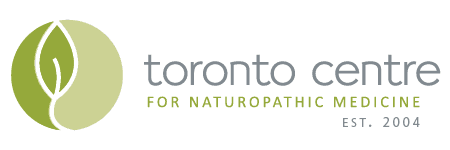Benign Prostatic Hyperplasia (BPH)
Benign prostatic hyperplasia (BPH) is well-treated using naturopathic medicine.
Benign prostatic hyperplasia (BPH) is the medical term for enlargement of the prostate gland (the gland in males found beneath the bladder that produces semen).
The cause of benign prostatic hyperplasia is unknown, but possible explanations include changes in the ratio of the male and female hormones (i.e., testosterone and estrogen) stimulating prostate tissue growth, and increased sensitivity of prostate tissue to normal levels of testosterone.
Benign prostatic hyperplasia is not related to development of cancer, but if it affects emptying of your bladder it can result in a decrease in quality of life (e.g., poor sleep), urinary tract infections (UTI), bladder stones and bladder or kidney damage.
Seek professional healthcare if you experience urinary problems.
Seek emergency medical care if you are completely unable to pass urine.
Symptoms of Benign Prostatic Hyperplasia (BPH)
Possible symptoms of benign prostatic hyperplasia (BPH) include:
- Difficulty starting urination
- Interrupted urination
- Dribbling at the end of urination
- Incomplete urination
- Weak urine stream
- Straining while urinating
- Urgent need to urinate
- Frequent need to urinate
- Increased frequency of urination at night
- Blood in the urine
- Urinary tract infection (UTI)
Treatment of Benign Prostatic Hyperplasia (BPH) at Toronto Centre for Naturopathic Medicine
At Toronto Centre for Naturopathic Medicine, the goals of benign prostatic hyperplasia (BPH) treatment are to manage hormonal imbalances to reduce size of the enlarged prostate gland.
Conventional treatment for benign prostatic hyperplasia (BPH) may include surgery, and a variety of medications, including alpha blockers and enzyme inhibitors. These treatments may have short- or long-term side effects.
For this reason, you may choose to try natural treatment to possibly avoid use of conventional medications, or together with conventional medications in order to decrease dosages of conventional medications required to manage your benign prostatic hyperplasia (BPH) symptoms.
Naturopathic treatment of any chronic health concern must be recognized as a process that involves:
- Identifying specific treatment goals
- Development by your naturopathic doctor, of a thorough understanding of all factors affecting your health, including physical, psychological, emotional and lifestyle factors
- Development of a comprehensive treatment plan
- Implementation and maintenance of that plan through periodic monitoring and adjustment
At Toronto Centre for Naturopathic Medicine, a typical approach to treating benign prostatic hyperplasia (BPH) may be to:
- Identify and address underlying factors in your lifestyle (e.g., caffeine and alcohol use, use of certain medications, sedentary lifestyle) that may be contributing to your benign prostatic hyperplasia (BPH) symptoms
- Relieve symptoms by “balancing” hormones using botanical (herbal) medicines
- Ease urinary symptoms using botanical (herbal) medicines
Where appropriate, a number of therapeutic options are available, to be used alone, or more often in a complementary fashion, including:
- Nutritional counseling
- Nutritional supplements
- Metabolic detoxification protocols
- Botanical (herbal) medicines
- Acupuncture
- Homeopathy
- Bowen Therapy
- Suikodo™
- Hydrotherapy
- Exercise prescription
- Relaxation (meditation) training
- Lifestyle medicine and counseling
Treatments provided by naturopathic doctors are covered by most extended healthcare plans.
References
Prostate gland enlargement [Internet]. Mayo Foundation for Medical Education and Research; [cited 2009 Feb 18]. Available from: http://www.mayoclinic.com/health/prostate-gland-enlargement/DS00027.


